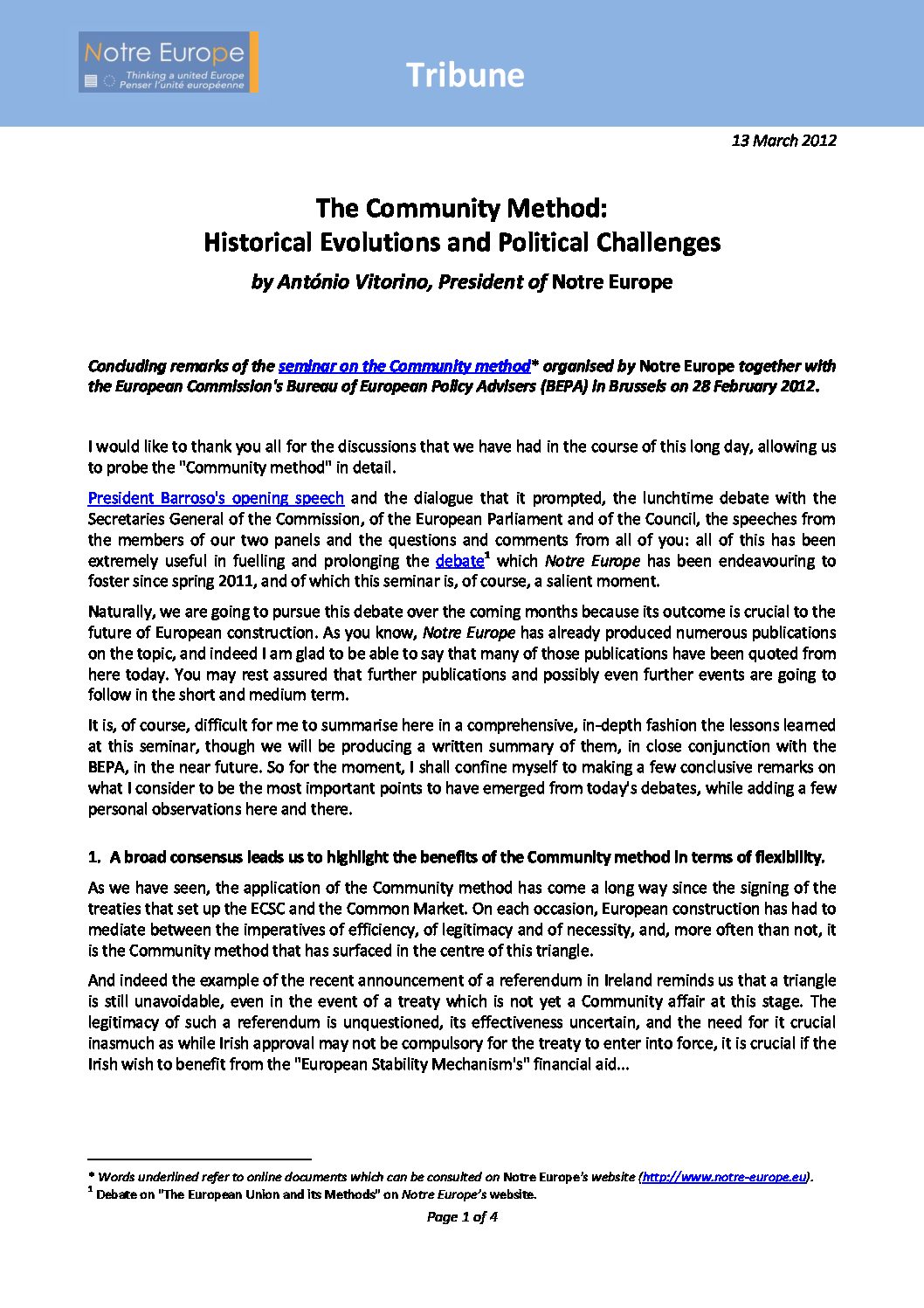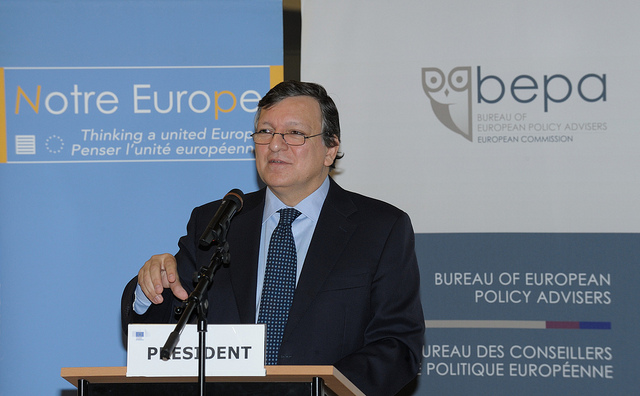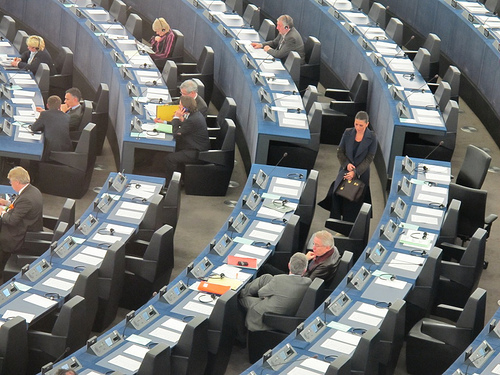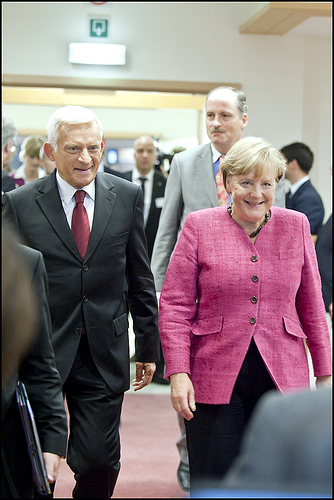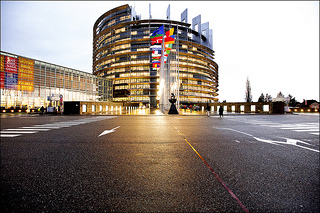Other document
The Community Method: Historical Evolutions and Political Challenges
Notre Europe publishes the concluding remarks expressed by António Vitorino during the seminar on the Community method* organised by Notre Europe together with the European Commission’s Bureau of European Policy Advisers (BEPA) in Brussels on 28 February 2012.
Concluding remarks of the seminar
on the Community method* organised by Notre
Europe together with the European
Commission’s Bureau of European Policy Advisers (BEPA) in Brussels on 28
February 2012.
I would like to thank
you all for the discussions that we have had in the course of this long day, allowing
us to probe the “Community method” in detail.
President
Barroso’s opening speech and the dialogue that it prompted, the lunchtime
debate with the Secretaries General of the Commission, of the European
Parliament and of the Council, the speeches from the members of our two panels
and the questions and comments from all of you: all of this has been extremely
useful in fuelling and prolonging the debate which Notre
Europe has been endeavouring to foster since spring 2011, and of which this
seminar is, of course, a salient moment.
Naturally, we are
going to pursue this debate over the coming months because its outcome is
crucial to the future of European construction. As you know, Notre Europe has already produced
numerous publications on the topic, and indeed I am glad to be able to say that
many of those publications have been quoted from here today. You may rest
assured that further publications and possibly even further events are going to
follow in the short and medium term.
It is, of course,
difficult for me to summarise here in a comprehensive, in-depth fashion the
lessons learned at this seminar, though we will be producing a written summary of
them, in close conjunction with the BEPA, in the near future. So for the moment,
I shall confine myself to making a few conclusive remarks on what I consider to
be the most important points to have emerged from today’s debates, while adding
a few personal observations here and there.
1.
A broad consensus leads us to highlight
the benefits of the Community method in terms of flexibility.
As we have seen, the
application of the Community method has come a long way since the signing of
the treaties that set up the ECSC and the Common Market. On each occasion,
European construction has had to mediate between the imperatives of efficiency,
of legitimacy and of necessity, and, more often than not, it is the Community
method that has surfaced in the centre of this triangle.
And indeed the example
of the recent announcement of a referendum in Ireland reminds us that a triangle
is still unavoidable, even in the event of a treaty which is not yet a
Community affair at this stage. The legitimacy of such a referendum is
unquestioned, its effectiveness uncertain, and the need for it crucial inasmuch
as while Irish approval may not be compulsory for the treaty to enter into
force, it is crucial if the Irish wish to benefit from the “European
Stability Mechanism’s” financial aid…
2.
At this juncture the European
Council is part and parcel of the Community’s institutional system.
The European Council
was first set up in the 1970s, since when, its role gradually became formalised,
and it was sanctioned as a European institution by the Lisbon Treaty: thus it is now part and parcel of the
Community’s institutional system, so that we should no longer be speaking of an
“institutional triangle” but of an “institutional
trapezium”.
The other consequence
is that we should not confuse the European Council’s intervention with the
“intergovernmental method”, the latter term being reserved for
cooperation forged outside of the Community framework (for instance, the
Schengen agreement).
At this juncture, the
European Council is an institution which is part of the Community method, a
method that is sufficiently adaptable and flexible to acknowledge its role,
primarily in terms of political input. There is absolutely no need to invent a
new “method” for that!
3.
The constant strengthening of the
European Parliament’s role has had a major impact on the functioning of the
Community method.
The development of the
European Parliament’s role is in singular contrast to that of the national
parliaments’ role: at the national level, political oversight has gradually but
effectively replaced their traditional legislative function in the sphere of
“European affairs”; while the gradual expansion and extension of the
European Parliament’s role has occurred above all in terms of legislative
powers (and budgetary powers, thanks to the Lisbon Treaty), but rather less so
in connection with powers of political oversight.
Yet we should
highlight the strong lack of symmetry in the oversight exercised with regard to
the Council and the Commission, and the perverse effects triggered by the
European Parliament’s temptation to cause difficulties for the Commission over “micro-management”
issues – a fact which has done nothing to boost Europe’s
legitimacy. This situation is a result, in particular, of the “framework
agreement” which the Commission and the European Parliament thrashed out
after the fall of the Santer Commission when the Commission was in a position
of major weakness, which is not the case today.
The increasingly
frequent conclusion of “early agreements]” between the European Parliament and the
Council has had another important consequence in terms of institutional
balances: while extending co-decision procedure is extremely positive from the
standpoint of legitimacy, in practical terms it leads the European Parliament
and the Council to negotiate directly with each other and causes the Commission
to show far greater hesitancy in the exercise of its right to withdraw its
proposals. That is a practical consequence which needs to be underscored –
without any moral judgment being implied one way or another.
4.
The joint empowerment of the
European Parliament and of the European Council has had a major impact on the
Commission’s exercise of its right of initiative.
As highlighted in a recent study published by Notre
Europe, the Commission is coming under the increasing influence of these
two players in its exercise of the monopoly that it holds in the field of
legislative initiative.
This situation is
understandable as long as we make a clear distinction between two aspects: the
agenda setting of initiatives that require to be promoted at the European
level, a register on which the European Council and the European Parliament
play a far from negligible and a perfectly legitimate role; and the definition
of the scope and substance of the initiatives proposed, which is extremely
important in order to put the debate and the final decision in their proper context,
and in connection with which the Commission always plays a crucial role, which
it must maintain.
In view of this, a
proposal on the table that aims to offer the European Parliament the right to
initiate legislation demands close and careful examination. Such a proposal
could help to strengthen the European Union’s democratic legitimacy, but it
would have a crucial impact both on the balance of powers among the various
European institutions and on the Commission’s influence – an aspect which I
feel the need to stress, even at the risk of sounding unpopular. What is
certain is that an innovation of this magnitude could not be implemented
without there being a “price to pay”, in other words, without the
need to mediate between the legitimacy and the efficiency of the Community
method.
5.
The organisation of
“differentiation” within the EU is an acid test for the Community
method, as shown by the adoption of the “Treaty on Stability, Coordination
and Governance in the Economic and Monetary Union” (“TSCG”).
The reform of Economic
and Monetary Union governance currently under way demands a response to the
crucial issue of a differentiation compatible with the application of the
Community method.
I would like to point
out in this connection that the “enhanced cooperations” instituted by
the Amsterdam Treaty are, in theory, an ideal formula because they allow
willing member states to move forward while leaving the door open for those
that may wish to join them at a later date. Yet I have no choice but to note
that to date it has proven possible to launch only two of these cooperations,
in connection with the right to divorce and with the European patent – because even
though the Schengen agreement harks back in spirit to such a step, it was in
fact concluded outside the treaty framework.
The reform of the governance
of the EMU – which it is worthwhile stressing, is not an “enhanced
cooperation” – is renewing the terms of the debate, in particular as far
as the involvement of Community institutions is concerned. As the member states
see it, it is only logical that the EMU should only concern the members of the
“euro-group”, even though we have seen that a majority of
non-eurozone member states were eager to sign the TSCG. But it is difficult to
envisage a similar rationale being adopted in connection with the Commission or
with the European Parliament, because it is hard to see why and how only their
members from eurozone countries should take part in debates and decisions
relating to the eurozone when the two institutions represent Europe’s general
interests and the European citizens in the broader sense of the term.
This is a choice which
I feel to be crucial for the future, and one which is pregnant with
consequences. It is a matter of safeguarding the foundations of the
Commission’s and the European Parliament’s political legitimacy while also
safeguarding the EU’s institutional unity. At the same time, we need to
envisage the prospect of an enhanced cooperation being subscribed to by only
nine states yet which, in view of the issues in play, could well involve a
majority of, or even exclusively, members of the Commission and of the European
Parliament from the other eighteen EU member countries. That is a political
challenge that we are going to have to probe well in advance.
6.
The various institutions’ political representativeness
affects the degree to which they participate in the Community method’s
application.
To describe the
challenge of political representativeness, I could mention the European Council
or the European Parliament, but I shall focus here on the Commission and its
statute because they have been very much in the limelight today.
The Commission
currently consists of a national from each member state, and at the same time
it is vested with its authority by the political majority in the European Parliament.
Should the President of the European Commission be directly nominated by the
European Parliament rather than by the European Council, as happens today, in
an effort to clearly reaffirm the Brussels college of commissioners’ parliamentary
legitimacy? Or on the contrary, should a dual legitimacy be preserved by
maintaining the link with the European Council and avoiding forging an
exclusive link with the European Parliament, which would help to impart a
strong political connotation to the Commission?
I well remember that, during
the Convention that elaborated the European constitutional treaty, John Bruton
suggested merging the posts of President of the Commission and President of the
European Council, and to then proceed with the direct election of this new
president. Michel Barnier, for his part, suggested adopting both national and
transnational lists in the European elections, specifying that the number one
candidates on those lists would be the natural candidates to the post of
President of the Commission.
Be all of that as it
may, it is incumbent upon me to specify that the Commission should continue to
enjoy the backing of a broad political coalition, and that it would be
dangerous for its internal functioning to be based on the co-existence of a majority
and of an opposition. Nor should we lose sight of the goal involving a
reduction in the size of the Commission, which would make it possible to
strengthen both its collegial nature and the exercise of its responsibility
towards the European Parliament and towards the European citizens.
7.
The functioning of the Community
method is finally facing a challenge in terms of democratic oversight.
In this connection,
interaction between the European Commission and European Parliament appears to
have found its level, while democratic oversight exercised over the Council is
further from that goal due to the variety of national practices in the way
parliaments monitor the work of their individual national governments.
There is a key issue
here on which I would like to dwell for a moment, namely the joint
strengthening of democratic legitimacy and parliamentary legitimacy at the national and European
levels. The strengthening of European legitimacy must not become synonymous
with the weakening of national democracy, because the two levels must interact.
One of the most
difficult obstacles that we encounter is that national elections only rarely
focus on European issues, but that should not discourage us from seeking ways
of involving national parliaments to a greater extent, not only with regard to
their governments but also at the Community level.
This increased
involvement is envisaged under the Lisbon Treaty, and it has become a necessity
following the adoption of bail-out plans connected with the sovereign debt
crisis. But it is obvious that the specific modalities of this involvement have
yet to be defined, as do the ways in which the national parliaments and the
European Parliament interact, because the “TSCG” has failed to dispel
the ambiguities in that area.
In this connection, I
would simply like to point out that the viability of the creation of a third
chamber, a proposal which has occasionally been mooted, seems to me to be questionable.
I fear that it would only make the institutional system more top-heavy and more
complicated without necessarily making it much more democratic, particularly in
view of the fragmented and varied nature of the oversight powers exercised by
the national parliaments.
That winds up my “concluding remarks”, which are of course
mere pointers that beg future development. Thank you again for your attention,
and I would also like to thank the BEPA and the European Commission for helping
to make this day such a success.
SUR LE MÊME THÈME
ON THE SAME THEME
PUBLICATIONS
The Community Method, the EU’s “default” operating system

The move from a functionalist to democratic method

Triggering European politics to reinforce the Community method

Seminar on the Community Method. Elements of Synthesis

For a revival of Europe

José-Manuel Barroso ‘ Speech et the BEPA-Notre Europe seminar on the Community method

The new discourse on the Method

Decision-making in the European Union

Intergovernmental method or community method: an irrelevant debate?

Co-decision and ‘early agreements’: an improvement or a subversion of the legislative procedure?










